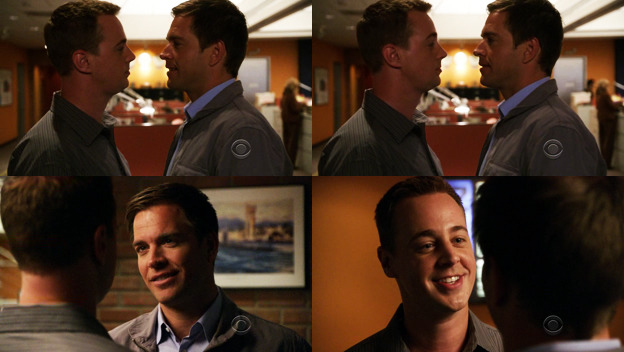
In the grand tapestry of human relationships, few threads are as resilient, or as baffling, as the bond between old friends. Tony and Tim, ostensibly two fully functional adults in their mid-thirties, embody this paradox with a flamboyant grace. Colleagues might know them as sharp, capable professionals, and casual acquaintances might praise their maturity. But those privy to their private world understand that beneath the veneer of adulthood lies a delightful, occasionally embarrassing, reservoir of unabashed childishness. It is in these moments of regression, sparked by the pettiest of triggers, that the true, unvarnished essence of their enduring friendship shines through.
Perhaps the most iconic display of their arrested development occurs during their bi-monthly board game night, an arena where the thin veneer of civility often crumbles spectacularly. The game in question hardly matters – be it the ruthless capitalism of Monopoly, the global domination of Risk, or even the strategic wordplay of Scrabble – the outcome is always the same: a descent into playground-level petulance. One memorable evening, during a particularly fraught game of Catan, Tim, with the slow, predatory grin of a hyena, managed to cut off Tony's crucial sheep supply, effectively guaranteeing his own victory. The air crackled with a familiar tension. Tony’s brow furrowed into an impressive mask of concentration, his lips forming a silent litany of curses. When Tim finally announced his winning move, Tony didn't just concede; he decapitated his tiny wooden knight piece with a dramatic flourish, declared the entire game "rigged by the sheep mafia," and retreated to the kitchen to loudly complain about the lack of proper snacks, a thinly veiled protest against Tim’s strategic genius. Tim, meanwhile, savored his victory with exaggerated, silent applause, occasionally humming a triumphant tune – a childish taunt as potent as any shouted insult. It was less a game between adults and more a squabble between two hyper-competitive five-year-olds who hadn't learned the concept of good sportsmanship.
Another deeply childish moment, steeped in the territorial instincts of prepubescent boys, unfolds whenever a shared platter of food enters the equation. Their weekly tradition of ordering a giant plate of nachos is a prime example. This isn't a communal meal; it's a silent, escalating battle for dominance over the crispest chip, the most melted cheese, or the largest dollop of guacamole. The nadir arrived one Tuesday when only a single, perfectly loaded nacho remained, a delicate ecosystem of cheese, jalapeño, and a generous smear of sour cream. Both men eyed it simultaneously. Tony, with the practiced stealth of a hawk, darted his hand forward, only for Tim to intercept his wrist with surprising speed, a glint of pure, unadulterated gluttony in his eyes. What followed wasn't a polite offer or a shared concession, but a silent tug-of-war, each trying to subtly, yet forcefully, guide the plate closer to their own side of the table. Their faces were studies in intense concentration, jaws clenched, eyes narrowed, as if the fate of the free world rested on who secured that last bite. They looked like two toddlers wrestling over a prized toy, oblivious to the other diners subtly averting their gaze. Eventually, the nacho broke, a casualty of their combined greed, leading to a loud, simultaneous groan of disappointment, followed by each accusing the other of being "too grabby."
But perhaps the most endearing, and undeniably childish, manifestation of their friendship surfaces when confronted with a shared responsibility or a minor domestic mishap. Take, for instance, the infamous "Great Plant Re-Potting Debacle." They had decided to re-pot a collection of houseplants, a task seemingly benign. An hour later, the patio was a disaster zone of spilled soil, broken ceramic, and half-dead foliage. "Whose fault is this mess?" Tony demanded, throwing his hands up in exasperation, his shirt streaked with dirt. Tim merely arched an eyebrow, "Well, somebody insisted on using the flimsy plastic trowel when I clearly said we needed the metal one." Tony scoffed, "And somebody was too busy dictating instructions to actually help clear the broken pieces!" What ensued was a rapid-fire volley of petty accusations, each blaming the other for every speck of dirt, every cracked pot, every wilting leaf. They weren't discussing a shared task; they were locked in a blame game worthy of siblings caught with their hands in the cookie jar, utterly unwilling to take an ounce of personal accountability, preferring to point fingers and exaggerate the other’s transgressions.
These aren't isolated incidents; they are defining rituals, moments when Tony and Tim shed the skin of adult responsibility and reveal the squabbling, competitive, yet ultimately devoted inner children they secretly harbor. Their childishness, far from being a flaw, is a testament to the profound comfort and security of their bond. It’s a safe space where they can regress without judgment, a reminder that the most profound connections often find their roots in the most innocent, and occasionally absurd, parts of ourselves. And perhaps, in a world that often demands so much maturity, a little unadulterated childishness among friends is precisely what keeps the spirit young.